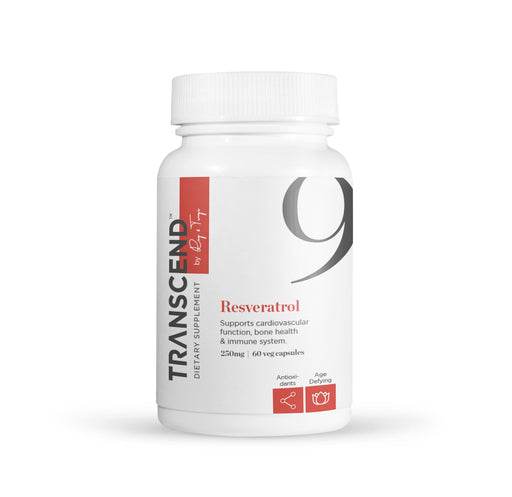
Vitamin B-12, Sublingual
Increased energy Improve mood Fight fatigue Common deficiency Better absorption Vitamin B12 (also called cobalamin) is one of eight water-solu...
View full details
Most of these tests are “functional” tests—they evaluate how well your digestive system is functioning—but they fall into the realm of “alternative” or “complementary” medicine as almost no conventional physicians utilize them. Conventional testing emphasizes direct observation of the intestinal tract, such as through an endoscope (upper gastrointestinal tract) or colonoscope (lower gastrointestinal tract), or by way of imaging studies such as ultrasounds, computed tomography, or barium x-rays.

Test kits for the tests below can be obtained through complementary healthcare practitioners. These tests are not taught in medical school, so interpretation is best done with the assistance of a nutritionally oriented healthcare practitioner such as a naturopath, chiropractor, or alternative and complementary medicine physician.
A breath test for methane can determine whether you are lactose intolerant. If so, you can avoid dairy products or take lactase supplements, which will break down lactose and will reduce symptoms when taken whenever dairy products are consumed. This test is available from a complementary doctor, and all you have to do to perform this test is exhale into a balloon. The gas in the balloon is then examined in the laboratory for the presence of methane, a gas that is not normally found in the colon but is formed by the bacteria in your bowel by fermentation of undigested lactose.
The intestinal permeability test can help you determine whether you have leaky gut syndrome. In this test, patients are given small amounts of two sugars, lactulose and mannitol, to drink, and a urine sample is collected some hours later. Normally, very little lactulose is absorbed by a healthy small intestine, so very little should appear in the urine. Mannitol, on the other hand, is very readily absorbed. A relatively high level of lactulose compared to mannitol indicates that the lactulose entered the bloodstream because the patient has leaky gut syndrome.
Hair mineral analysis provides two types of information. It can tell you about the levels of various toxic metals in your body and also indicate levels of essential minerals needed for optimal health. The analysis provides you with semi-quantitative data about essential minerals, such as calcium, magnesium, strontium, chromium, vanadium, manganese, selenium, zinc, and others. To perform this test, a few snips of hair, totaling about 1 gram, are collected from the back of the head and sent to the laboratory for analysis.
If a person has low levels of many essential minerals, the cause is often hypochlorhydria, or low stomach acid. To absorb beneficial minerals such as calcium, magnesium, chromium, and zinc from the food you eat, it is necessary to have adequate amounts of stomach acid. The hydrochloric acid in your stomach helps to ionize minerals to facilitate their absorption. Many people, particularly as they age, develop hypochlorhydria. Paradoxically, a common symptom of decreased stomach acid is heartburn—just the opposite of what you’d expect—and individuals typically treat their heartburn symptoms with antacids, which decreases stomach acid even further. This can lead to mineral malabsorption and is reflected in low levels of minerals in the hair analysis and can lead to symptoms such as chronic fatigue or frequent infections. If you perform a hair mineral test and find that many of your minerals are low, supplementation with betaine hydrochloride (an inexpensive form of hydrochloric acid) can help reverse the underlying hypochlorhydria and facilitate mineral absorption. (Caution: Betaine hydrochloride should never be taken if you have a history of peptic ulcer disease or are taking aspirin or NSAIDS [nonsteroidal anti-inflammatory drugs].)
We’ll be the first to admit that collecting and preparing specimens for the comprehensive stool analysis (CSA) isn’t particularly pleasant, and it isn’t helped by the fact that the laboratory wants you to collect your stool specimen in a soft cardboard container that looks like it was intended to hold a small order of French fries. But, it’s amazing how much information you can get by analyzing your stool. A typical CSA report provides information about all aspects of the digestive tract from the mouth to the colon. The report discusses four specific aspects of digestive tract function: digestion, absorption, metabolic markers, and colonic bacteria.
The digestion part of the CSA test looks at what happens from the time the food enters your mouth until the start of your small intestine. Maldigestion may be the result of improper chewing, inadequate amounts of amylase in your saliva, or hypochlorhydria. It includes a measurement of chymotrypsin as well as the number of undigested meat and vegetable fibers in the stool. Chymotrypsin is an enzyme excreted by the pancreas that helps to digest protein. An abnormally low amount of chymotrypsin in the stool suggests inadequate pancreatic function and the possible need for pancreatic digestive supplementation. A high level of this enzyme is associated with rapid transit time of food throughout the digestive tract, perhaps as a result of food allergies. Undigested vegetable and meat fibers in the stool suggest improper breakdown of food due to inadequate chewing or lack of stomach acid.
The absorption part of the CSA test measures how well your digested food is absorbed through the walls of the small intestine. Total fecal fat, cholesterol, long-chain fatty acids, and triglycerides are among the tests done. These tests provide information about the adequacy of the liver and gallbladder at making bile acids to help emulsify fat, the pancreas at producing lipase for fat breakdown, and the integrity of the walls of the small intestine for absorption. Liver, gallbladder, pancreatic, and small intestine dysfunction can all be diagnosed through this analysis.
Metabolic markers included in the CSA include several tests of large-bowel or colon health. The tests include beta-glucuronidase, n-butyrate, beneficial short-chain fatty acid distribution, and more. Beta-glucuronidase is an enzyme produced by some of the bacteria living in the colon, and elevated levels are associated with increased risk of colon cancer. N-butyrate is the main nutrient needed by the cells of the colon and help keep these cells healthy. Beneficial short-chain fatty acids are produced by the fermentation of non-absorbed dietary fibers. They help to keep pathogens out of the bowel and also help produce as much as 30 percent of the energy used by the body.
Patient data from Terry’s clinic suggest that the overwhelming majority of people do not have adequate amounts of normal colonic bacteria. As a result, they often develop intestinal dysbiosis, the overgrowth in the colon of abnormal organisms such as alpha hemolytic streptococcus, Klebsiella, or yeast. Treatment of dysbiosis includes restoration of normal bacteria through the use of a probiotic supplement, as well as an herbal product designed to kill the abnormal organisms. Performing a CSA can provide vital and lifesaving information.

Increased energy Improve mood Fight fatigue Common deficiency Better absorption Vitamin B12 (also called cobalamin) is one of eight water-solu...
View full details
Combat internal aging Protect cells from radiation damage Increase antioxidant capacity Take with lecithin for better absorption Optimal dose for...
View full details
2022 update: Future batches of this product will use a Ubiquinol product that is a greenish capsule rather than a red softgel Bioavailable form o...
View full details
A Kurzweil + Grossman Formula Continued Synergy between Science and Convenience Convenient dosage packets Top anti-aging products Increase energy...
View full details